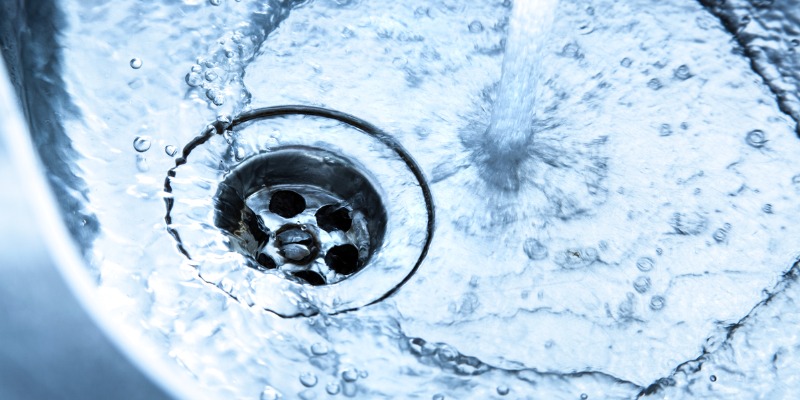
While walking down the cleaning aisle, you may have noticed flashy bottles of drain cleaner promising to clear total blockages. You might be wondering, though, if these drain cleaners can dissolve various materials, what do they do to my pipes?
Below, we discuss what you should know about these powerful drain products and why plumbers often recommend using other alternatives.
How Does Liquid Drain Cleaner Work?
There are a variety of chemical drain cleaners available on the market, yet they all work in a similar fashion. Drain cleaner ingredients are designed to dissolve whatever might be causing the clog, be it food, grease, or hair. Some products use strong acids, while others use caustic substances.
When the drain cleaner comes in contact with the blockage, a chemical reaction occurs, breaking down substances and often releasing heat.
Is Liquid Drain Cleaner Safe for My Pipes?
So, can drain cleaner damage pipes? Because of the highly corrosive nature of chemical drain products, the harm they do rarely stops at the blockage. These substances can also weaken the materials in pipes and cause lasting damage.
Some liquid drain cleaners may be suitable for different materials. Make sure to check whether your pipes are metal or PVC before using a drain cleaner designed for a specific type of pipe. Better yet, consult with a plumber to learn the best way to clean your drains.
How to Use Liquid Drain Cleaner Safely
Generally, you should avoid using chemical drain cleaners since they may cause damage to your pipes due to either corrosion or heat.
However, if you are in a pinch, we have a few safe liquid options you can try below.
Hot and Cold Water
Generally, pipes can handle hot water. Start by pouring hot (not boiling) water down the drain to loosen and dissolve the clog. For many types of blockages, warm water is enough to help move them along. Then, wait about 15-20 seconds and pour cold water down the drain until you notice it is draining more quickly. This cold-water step is crucial to ensure hot water does not sit in the pipes and potentially melt vital plastic parts. Repeat this process until the water flows freely down the drain.
Vinegar or Baking Soda
Like chemical drain cleaners, household vinegar and baking soda can induce the chemical reactions needed to dissolve blockages. The benefit of these ingredients, though, is that they are much weaker and should not cause any damage to your pipes. Simply pour white vinegar or a mixture of baking soda and water down the drain and flush with water.
What’s The Best Way to Clean Drains?
Generally, the best way to clean drains is by using a physical instrument such as a drain snake. You can buy these at your local hardware store or hire a plumber to do the hard work for you.
Struggling with a plugged drain and need it fixed ASAP? Contact B&B ClimateCare today for emergency plumbing services in Orilla, ON.






